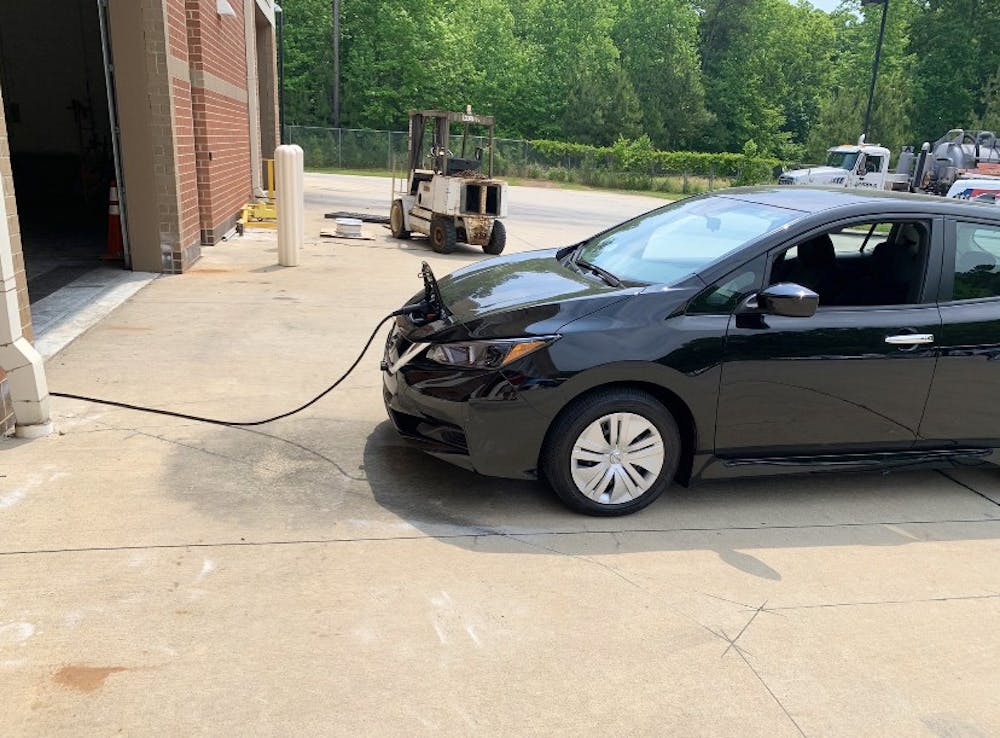Chapel Hill Transit is set to begin using electric buses and cars in a move toward more sustainability.
Brian Litchfield, the director of Chapel Hill Transit, said 16 electric cars have been purchased so far, and these vehicles will replace their gasoline counterparts that have reached the end of their useful life.
Litchfield also said three electric buses will be in service after they arrive between July and August. The department plans to order an additional seven buses, which will arrive in late 2022 or early 2023, he said.
“Chapel Hill Transit’s use of electric buses is an important step in continuing our community’s reduction of greenhouse gas emissions,” Michael Piehler, UNC chief sustainability officer and special assistant to the chancellor for sustainability, said.
The Town of Chapel Hill, Orange County and UNC are partnered with the transit system, Litchfield said, to push toward a greener future.
Chapel Hill Transit's move to electric cars has been met with enthusiasm from activists and students.
“Any step towards lower emissions is encouraging,” Julia Straight, a rising sophomore and member of The North Carolina Public Interest Research Group, said. “I’m definitely more likely to use Chapel Hill transportation now that it’s becoming more sustainable.”
But the transition to electric vehicles is not without its challenges, Litchfield said. The electric cars — all of which are Nissan LEAFs — are inaccessible to individuals with disabilities, he said.
He said Chapel Hill Transit is working to identify which midsize vehicles could allow for the transportation of people using wheelchairs or other mobility devices.



